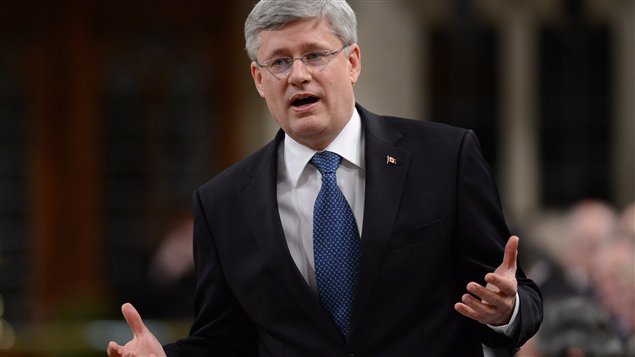The conflict between a handful of dissidents in Canada’s governing Conservative Party and Prime Minister Stephen Harper apparently is not going away, at least not for a while.
Mr. Harper likes to control things. The dissident Tory MPs say he controls too much. They are calling on the Speaker to grant them more freedom.
It appeared the mini-revolt had been snuffed out at a caucus meeting on Wednesday. But Thursday in the House of Commons, three Conservative backbenchers rose in support of MP Mark Warawa, who on Tuesday was told by the party whip to back off when he tried to read a statement condemning sex-selective abortions.
Their support brought to five the number of MPs who have publicly expressed displeasure over the restraints. More Conservative members are expected to join the dissent following Parliament’s Easter Break.
The dissenters say the issue is a matter of free speech. Mr. Harper and his inner circle say the dispute is over abortion and the prime minister will not budge on that matter. In the 2011 federal election, Mr. Harper promised not to reopen the abortion debate. As a result, he won increased support from women.
The dissidents want Speaker Andrew Scheer to side with them. Whether he will is problematic. He is appointed by Mr. Harper and it is Mr. Harper who signs Mr. Sheer’s nomination papers to make him eligible to run in an election as a Tory.
Backbench revolts are relatively rare in Canadian politics, which is subject to some of the strictest party discipline in the world. Party leaders control the agenda and MPs are required to toe the line and to follow orderswith no questions asked.
The dispute centres on what MPs can say–or not say–in the member’s statements segment in the Commons that takes place prior to question period. MPs deliver 60-second monologues on issues that concern them and–they say–their constituents.
The dissident Tory MPs say they are fed up with being told what they should say by the party leaders and that the party whip decides who can speak. Questions that backbenchers ask their cabinet members during question period are usually written by the government.
The dissident MPs say that’s not the way it is supposed to work. Mr. Harper and his inner circle say that’s the way it is–that the prime minister, like the coach of a hockey or football team, calls the plays–not the scrubs.
The conflict is the first time that Mr. Harper has failed to keep any caucus rebellion private since he took power in 2006, and it does not come at a good time for the prime minister. After seven years in power, the popularity of his Tories is beginning to sag.
Public opinion polls suggest that Justin Trudeau, who is on course to win the leadership of the Liberal Party in April, would likely beat Mr. Harper if an election were to be held now.
However, Mr. Harper–with a majority–does not have to call an election now. He can decide when to hold the next vote and does not have to call one until 2015. (th)







For reasons beyond our control, and for an undetermined period of time, our comment section is now closed. However, our social networks remain open to your contributions.